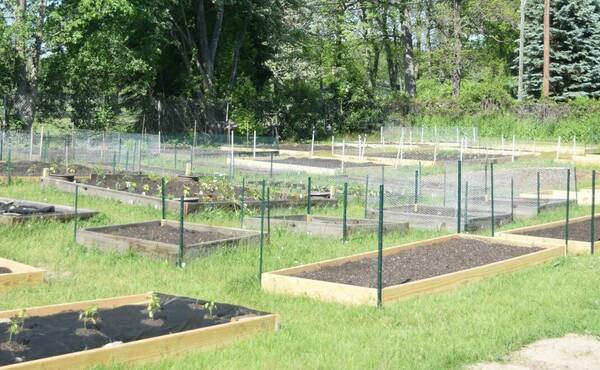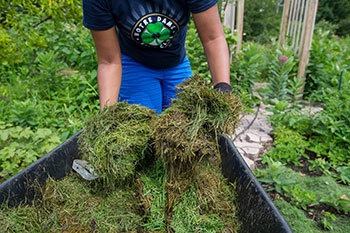

The Notre Dame Campus Community Garden has moved to a new home on Ivy Road from its former location at White Field.
The original garden began in 2010 as a partnership with Food Services, HR Wellness, St. Liam Health Services, and the Office of Sustainability. A growing campus meant this year the community garden needed to be relocated.
Even though some perennial plants had to be left behind at the former White Field garden, the new location has many benefits. The new site offers space to current gardeners and provides room while providing room to add new gardeners. It also affords everyone the chance to look at the practices being used, and see if there might be room for improvement. One of the new changes in processes this year will be the creation of a permaculture garden which is an agricultural gardening method that seeks to create a highly efficient self-sustaining ecosystem.
Another benefit of the new location is a dedicated space for students in the sustainability minor horticulture class. The class, taught by Theri Niemier, co-owner of Bertrand Farms, was offered for the first time this semester. The students sowed seeds in the greenhouse, located on top of the Hank Family Center for Environmental Sciences, and then transplanted them to the new garden space this spring. “It’s great to have students interested and involved because where students go, the energy goes,” says Woolley.
Jessica Woolley, Manager, Notre Dame Work Control Center oversees the Campus Community Garden and served an integral part in the transition of the garden to its new home at 54067 Ivy Road. Sarah Misener and the Campus Services division provided much needed support during the move to the new location by installing a pump and electrical services to the new site. Preparations for this year’s growing season are already underway with 18 gardening plots in use and 20 more coming soon. As time, resources, and space permit, the garden will continue to expand, allowing additional plots free of charge for current University faculty, staff, and students.
To participate in the campus garden, gardeners agree to grow organically, visit their plots often, and keep their area free of weeds and insects. The University in turn provides compost, mulch, and leaves. There are also work days held two to three times a year at the beginning and end of growing season, where all gardeners come together to maintain the entire gardening area. In the garden, there is no hierarchy of status or position. It’s like an equalizer where everyone comes together from all across campus to share their skills and talents with fellow gardeners, furthering the sense of community. Woolley says, “Although organic gardening is hard work, it is very satisfying to see how things grow and how much appreciation you develop for our farmers and the work they do to grow our food.”
For more information on the Notre Dame Campus Community Garden, you can post to the group at campus-garden-list@nd.edu. To subscribe, send a blank email to campus-garden-list+subscribe@nd.edu with the message “SUBSCRIBE” in the body of the email
Originally published by at green.nd.edu on May 23, 2017.